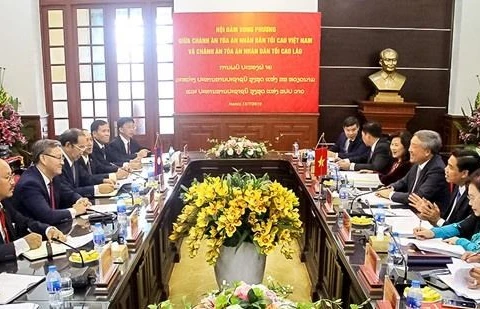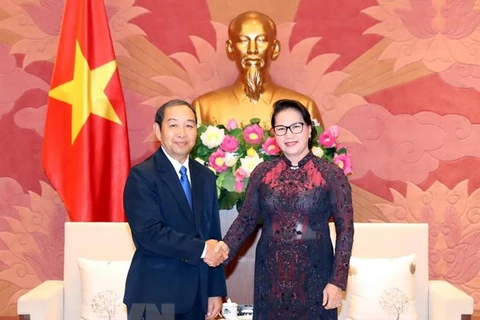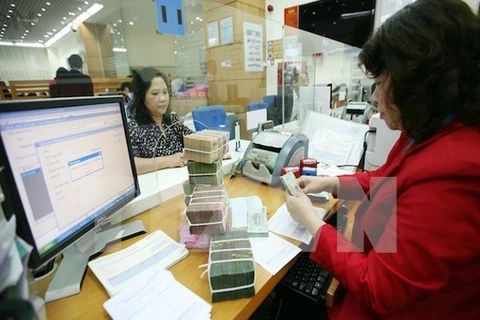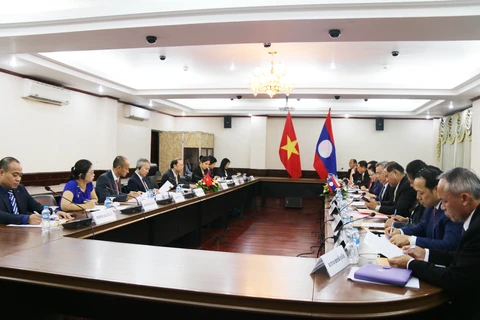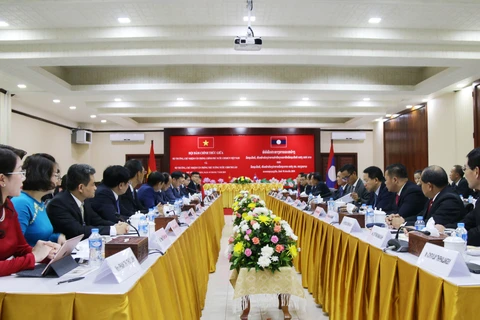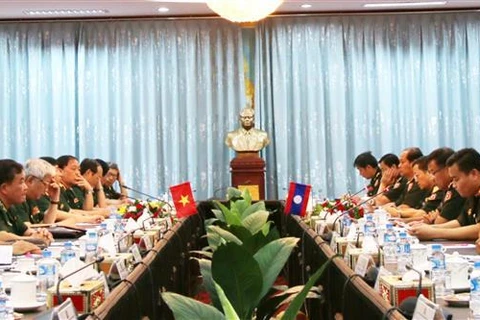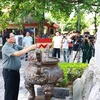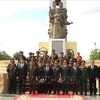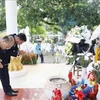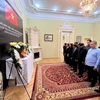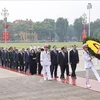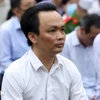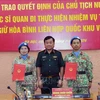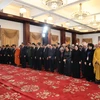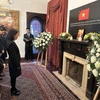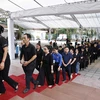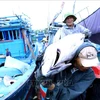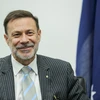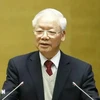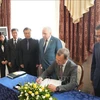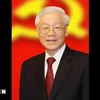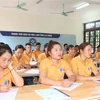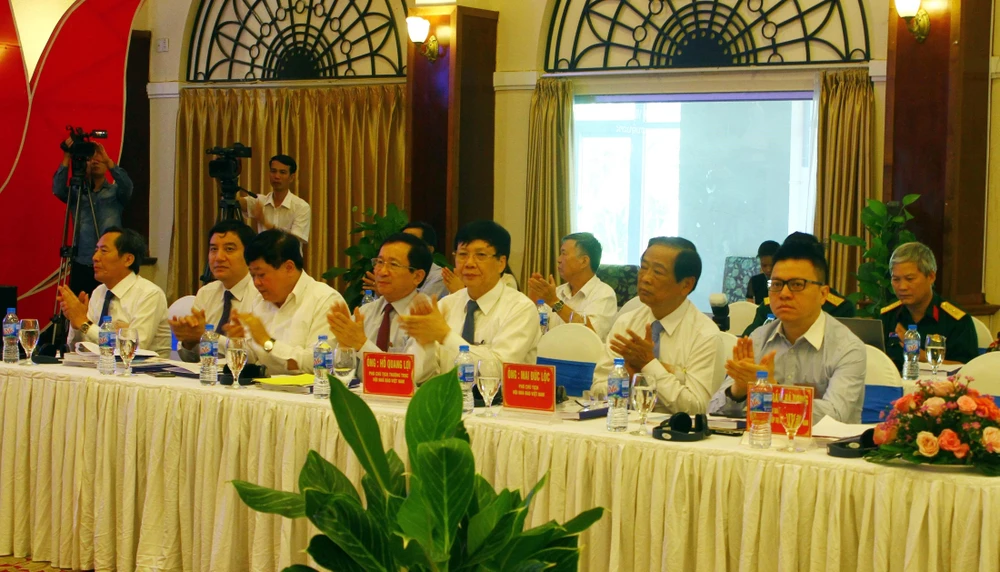
Nghe An (VNA) – The Vietnam Journalists Association (VJA) and the Lao Journalists Association (LJA) co-organised an international workshop in the central province of Nghe An from July 25-28 to discuss ways to improve press activities in the era of digital communications.
The event aims to strengthen the friendship and cooperation between the two associations under already signed agreements.
Thuan Huu, Vice Chairman of the Party Central Committee’s Commission for Information and Education cum President of the Vietnam Journalists Association and Editor-in-Chief of the Nhan dan (People’s) Newspaper, said the traditional friendship, cooperation and solidarity between the two associations have helped to enhance relations between Vietnam and Laos.
Within the framework of bilateral cooperation as well as the Confederation of ASEAN Journalists (CAJ), the two associations have closely worked together, providing inclusively information about the political, economic, and social life of Vietnam and Laos in the cause of national construction and reform, he said.
The VJA and LJA have been coordinating in training, including multimedia journalism, to improve capacity and professional ethics of journalists so that they can catch up with the development trend of modern journalism in the region and the world, Huu said.
He noted that the Vietnamese and Lao press are focusing on reflecting political, economic and social issues in the respective country besides major global matters such as regional political conflicts, economic growth, climate change, and environmental issues.
The official also mentioned challenges posed by social networks and suggested the Vietnamese and Lao press change their mindset in the era of digital media.
Phosy Keomanivong, Director of the Lao National Radio, said programmes on media outlets must be diversified to meet the needs of society.
It is necessary to promptly refute and respond to reactionary information against the Party and State guidelines and policies, as well as distorted information to create right understanding for society, he stressed.
General Director of Radio the Voice of Vietnam (VOV) Nguyen The Ky said the development of technology and social networks creates both opportunities and challenges for the press and the whole society.
The press must be quick, but ensure accuracy, humanity and high social responsibility, he stressed.
Ky added that in the era of digital communications, newspapers, radios and televisions are important tools to carry out the function of disseminating, educating, connecting, and sharing information and ideology on the internet and new forms of communications like Facebook and Twitter.
Deputy General Director of the Vietnam News Agency (VNA) Le Quoc Minh presented a report on artificial intelligence (AI) and the press: the world’s trend and the VNA’s strategy, saying that from 2011 to 2012, the VNA planned to test automated translation applications.
In early 2019, the test of machine translation was resumed in some VNA units. The preliminary results showed that it helped increase productivity by at least 30 percent. For good translators, the rate could amount to 200 percent or more.
In October 2018, the VNA’s e-newspaper VietnamPlus officially launched chatbot application which automatically interacts with readers, marking a new step of the editorial office in the application of the fourth industrial network in the field of journalism.
This also helped the VNA become the first official press agency in Vietnam to use chatbot to interact with readers, Minh said, adding that this app earned VietnamPlus the first prize of the OANA Award for Excellence in News Agency Quality at the 44th OANA Executive Board Meeting in April 2019.
VietnamPlus is continuously improving the app, which will be applied for other editorial offices of the VNA, including Vietnamese and foreign language newspapers, he said.
Minh elaborated the VNA’s project is different from those of other e-newspapers in Vietnam. The technology that the VNA is studying with partners allows the system to automatically summarise an article and synthesizes summary sections into an audio, he said.
Since mid-2018, the VNA has started implementing the voice-to-text app, he said, noting that this technology had been studied for a long time in the VNA but just tested on audio news. Now, it is tested for videos.
Minh also revealed that the VNA is studying the integration of AI into content management systems (CMS) of its online newspapers.
Sinhpangna Rattanavong, Deputy General Director of the Lao News Agency (KPL), underlined the close traditional cooperation between the KPL and VNA, which, he said, contributes to developing the relations between the two countries.
The two sides have coordinated and provided mutual support to improve the quality of news and images as well as share experience in training, building technical infrastructure, and backing journalists in professional operations, he said.
At the workshop, participants presented their opinions about how to attract readers and boost press cooperation between Vietnam and Laos in the era of digital communications.-VNA
VNA
